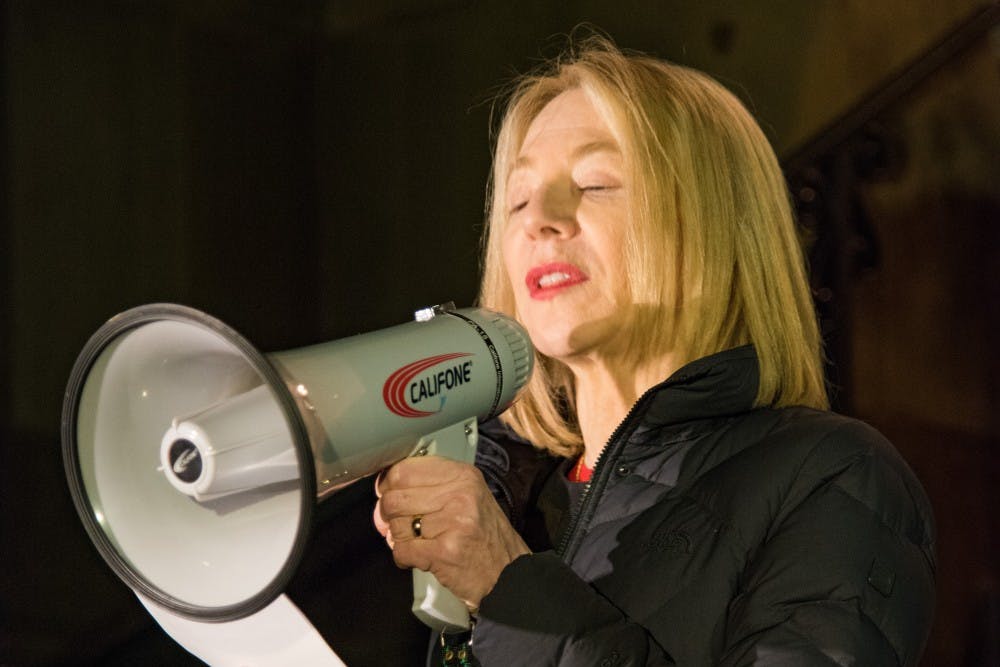
The Penn administration has not remained silent in light of President Donald Trump’s recent immigration ban.
A few days after President Trump signed an executive order temporarily banning immigration from seven majority-Muslim countries, Penn President Amy Gutmann took a public stance on the issue. In an email sent to the Penn community, which she also recited at a Faculty Senate protest, Gutmann condemned the executive order as “injurious to our work and inimical to our values.”
Gutmann, along with Princeton University President Christopher Eisgruber, also helped draft a letter to Trump criticizing the ban. The letter, which urged Trump to “rectify or rescind” the executive order, was signed by 47 other university presidents.
Many of the universities that have signed the letter have taken a public stance and expressed deep concern regarding the implications of the immigration ban. In a statement to the Princeton community, Eisgruber called immigration “indispensable to the mission and the excellence of America’s universities” and assured that Princeton would not disclose any information about its students to law enforcement officers. In a statement titled “We Are All Harvard,” Harvard President Drew Faust emphasized the university’s “robust commitment to internationalism” and said that its federal relations staff has been in direct contact with local, state, and federal leaders to express “our grave concern.”
However, not all universities across the United States have taken an equally active stance in standing up against President Trump’s order. University administrations that have not been as vocal in their stance have received criticism from some alumni and faculty.
In an open letter to Wake Forest University, alumni Carleigh Morgan and Joshua Courtney expressed “deep dissatisfaction with the official response issued by University President Nathan O. Hatch” regarding the executive order. They wrote that Hatch’s remarks “fail to provide concrete reassurances that preserving the safety and multicultural interests of a diverse student body are a priority,” and pointed to Gutmann as “a model for appropriate reaction.”
The faculty at the University of North Carolina at Chapel Hill also wrote an open letter asking the administration to take concrete steps to protect students affected by the immigration ban. Citing schools like the University of Michigan, the University of Wisconsin and Cornell University, the faculty urged the administration “not to release sensitive information, such as immigration status, to federal authorities” unless required by law.
“[Chancellor Carol Folt] didn’t involve any direct statement saying that UNC disagreed with the position of the Trump administration on immigration and the results that came from their actions, executive actions,” UNC professor Caroline Zimmer told The Daily Tar Heel.
While the University of Virginia president Teresa Sullivan stated that the administration will not release the immigration status of any students unless legally required, she also said that it would be “unlikely the University would be taking a stance in favor of or against the order, for a variety of reasons,” reported The Cavalier Daily.
“[Sullivan] said it would likely be ineffective, as many universities are written off as liberal institutions,” the article said.
Wake Forest University, UNC or UVA did not sign the letter to President Trump; however, they did sign a letter to Homeland Security Secretary John Kelly. The letter, which stated that “America is the greatest magnet for people from around the world and it must remain so,” was signed by nearly 600 colleges and universities.
The Daily Pennsylvanian is an independent, student-run newspaper. Please consider making a donation to support the coverage that shapes the University. Your generosity ensures a future of strong journalism at Penn.
Donate



